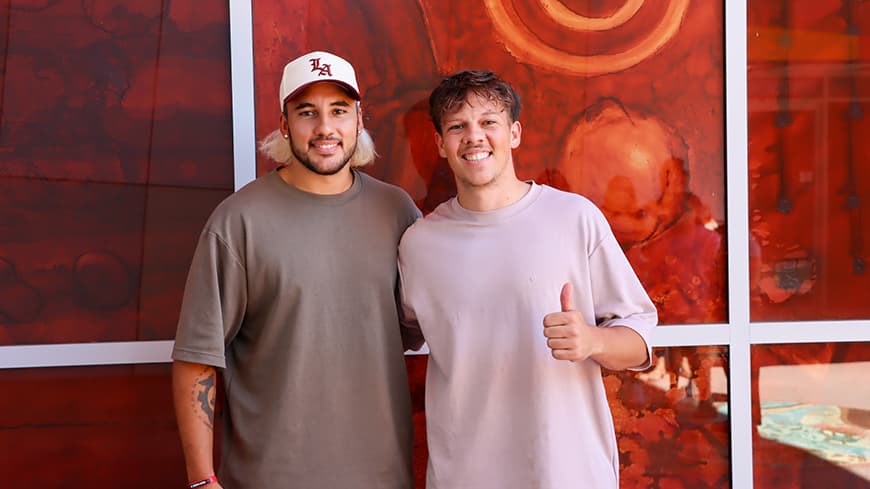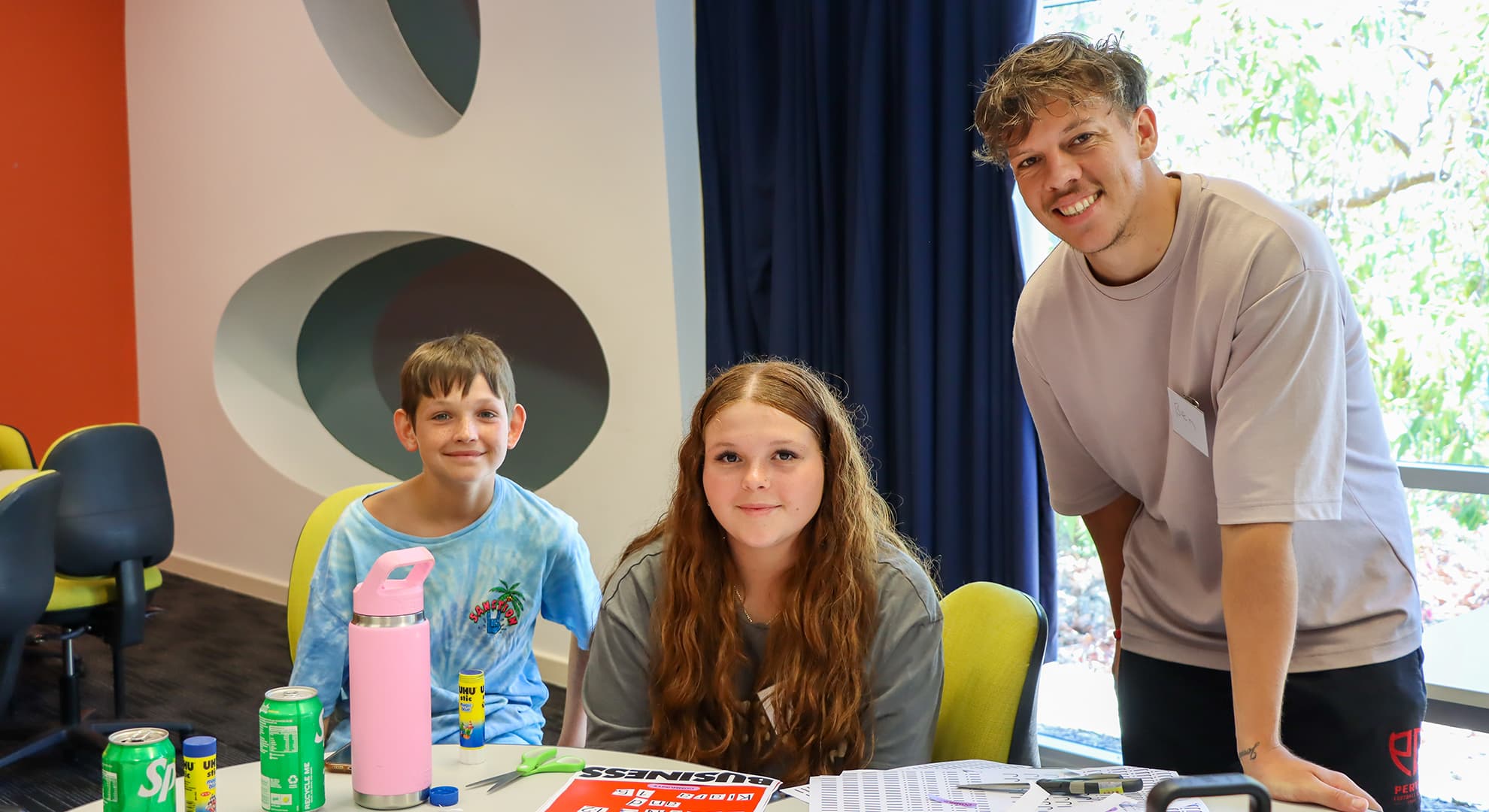Edith Cowan University (ECU) has held a workshop aimed at raising human papillomavirus (HPV) vaccination rates among Aboriginal youth. Facilitating the workshop were TikTok content creators and brothers Sam and Ben Stubbs who engaged a group of young Aboriginal people aged 12 to 15 on how to create their own social media content.
Sam and Ben, both affectionately known as Stubbers, have collectively amassed over 500,000 followers on TikTok.
 Sam and Ben Stubbs use their 500,000 TikTok followers to promote healthy lifestyles.
Sam and Ben Stubbs use their 500,000 TikTok followers to promote healthy lifestyles.
"At the end of the day we want all our families to live long and healthy lives, and to do that we got to learn to make healthy decisions," Sam explained.
The power of research and social media
Delivering health promotion through social media platforms is one of the latest tools employed by ECU researchers to empower people to take ownership over and control their health.
"In the workshop participants learnt how to develop and create TikTok messages for themselves that can inspire others to make good decisions when it comes to their health, like getting the HPV vaccination," Associate Professor Natalie Strobel said.
 Sam and Ben Stubbs with TikTok workshop participants.
Sam and Ben Stubbs with TikTok workshop participants.
Associate Professor Natalie Strobel is a full time researcher in the Maladjiny Research Centre within Kurongkurl Katitjin, her research project Improving HPV vaccination rates for Aboriginal young people through social media, received a National Health and Medical Research Council (NHRMC) Ideas Grant to explore how combining co-created health promotion messages from young Aboriginal people with 'micro-Influencers' can improve HPV vaccination rates.
"More Aboriginal and Torres Strait Islander kids are not getting the vaccine, so we have created a brand and are using social media platforms to promote the importance of getting the vaccination," she said.
The brand launch will coincide with the start of secondary school in 2024.
"There is an HPV vaccine that children in Year 7 can get for free, it's a one-off vaccination and the international evidence shows that deadly cancers, like cervical cancer are declining significantly because of it."
TikTok changing the prognosis
Human papillomavirus (HPV) is a common sexually transmitted infection that can lead to HPV-related cancers such as cervical cancer and other cancers such as anal, vaginal, and penile cancer.
HPV rarely produces symptoms and cannot be cured or treated, therefore vaccination is essential to protect against HPV and HPV-related diseases.
Data from the National Centre for Immunisation Research and Surveillance show that many Young Aboriginal and Torres Strait Islander people do not receive their HPV vaccine doses, resulting in missed opportunities to be protected from HPV and HPV-related cancers.
"What we hope to see in the future is improvements in HPV vaccination for Aboriginal and/or Torres Strait Islander young people as a result of this campaign and we'll be watching closely to see if this happens."

 Ben Stubbs with teenage TikTok users at ECU Mount Lawley campus.
Ben Stubbs with teenage TikTok users at ECU Mount Lawley campus.



